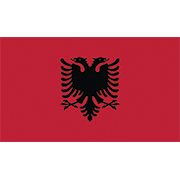Fiscal subject related
As the summer season approaches, the Tax Administration of Albania has released instructions for businesses operating in the accommodation sector to ensure compliance with Council of Ministers No. 160 (March 12, 2025). The guidelines streamline reporting procedures and transparency within the tourism industry.
The usage of standardized naming on invoices—accommodation invoices must clearly state "Room" at the beginning of the service description to facilitate accurate fiscal reporting. On every fiscalized invoice for accommodation services, the description of the item must necessarily begin with the word "room." This ensures that the accommodation service is clearly identified and treated with its own special tax regime. Each invoice must clearly indicate the number of days or nights the client stayed in the accommodation facility. The use of general descriptions such as “weekly package” or “daily stay” should be avoided, and instead specified, e.g., “Room—3 nights,” as appropriate.
The invoice must distinguish lodging fees from additional services such as restaurants, sunbeds, umbrellas, or swimming pools. However, businesses offering bundled packages must ensure transparency in pricing.
Hotels and other accommodation facilities that provide extra services—such as sunbeds, umbrellas, restaurant meals, or spa treatments—must issue separate invoices unless these services are included in an indivisible package. For example, a hotel with a private beach must charge separately for each rented sunbed or umbrella, preventing misclassification of non-accommodation services.
The preferential 6% VAT rate applies only to accommodation services in officially recognized tourist structures. This includes lodging fees and breakfast when bundled into the room price. Other amenities, such as bars, restaurants, and wellness services, do not qualify for the reduced rate and are subject to standard VAT rates.
The Tax Administration urges businesses to follow these guidelines to ensure compliance, facilitate transparent invoicing, and prevent tax discrepancies.
Other news from Albania
Fiscalization in Albania: the storage of fiscal receipts
 Albania
Author: Nikolina Basić
Albania
Author: Nikolina Basić
In Albania, fiscal receipts may be kept in their original paper or electronic form, but businesses can store them electronically if authenticity, integrity, and long-term readability are ensured. Read more
Subscribe to get access to the latest news, documents, webinars and educations.
Already subscriber? Login


Albania Imposes VAT on Digital Services from Foreign Companies
 Albania
Author: Nikolina Basic
Albania
Author: Nikolina Basic
Albania's Tax Administration has introduced new measures requiring international companies providing digital services to register for VAT and charge a 20% tax on sales to local customers. To comply, foreign companies without a physical presence in Albania must appoint a local tax representative to handle VAT registration and payments. The Albanian Tax Administration has introduced new measures req... Read more



Tax Administration in Albania clarifies Invoice exemption for street vendors
 Albania
Author: Nikolina Basić
Albania
Author: Nikolina Basić
The Albanian Tax Administration has clarified that legally registered street vendors are exempt from issuing tax invoices and fulfilling fiscalization requirements. This exemption is outlined in national tax laws and applies to self-employed individuals trading in public spaces with proper registration and permits. The announcement aims to address public inquiries and promote understanding of simp... Read more



Tax Administration of Albania launches campaign to formalize agricultural trade
 Albania
Author: Nikolina Basić
Albania
Author: Nikolina Basić
Albania’s Tax Administration has launched a one-week campaign to formalize agricultural trade by promoting the use of fiscalized invoices for all wholesale and retail transactions. Following the awareness drive, a Task Force will carry out on-site inspections to enforce compliance with Law No. 87/2019. Albania’s Tax Administration has begun a one-week information campaign with the goal to fo... Read more



Albania mandates tax representation and VAT compliance for multinational digital service providers.
 Albania
Author: Nikolina Basić
Albania
Author: Nikolina Basić
Albania now requires foreign digital service providers offering B2C services to appoint a local tax representative, register for VAT, and apply the standard 20% VAT rate on sales to Albanian consumers. This mandate, effective from May 14, 2025, targets services like streaming, software, and hosting, aiming to align with Albania’s broader revenue and compliance strategies. Read more
Subscribe to get access to the latest news, documents, webinars and educations.
Already subscriber? Login


TLv6 Implementation Marks Significant Shift in EU’s Trust List Format
A new EU Trust List format, TLv6, will officially replace TLv5 in May 2025 as part of the updated eIDAS Regulation (EU 2024/1183). It introduces key technical changes like a new URI field, updated signature format, and optional phone number support. Organizations must update their systems to avoid signature validation failures and service disruptions, as TLv5 will no longer be valid once TLv6 take... Read more


